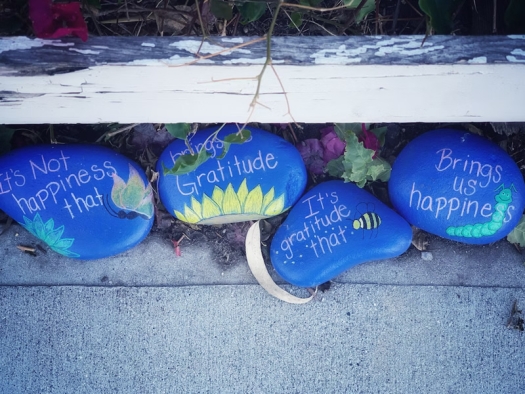GratitudeHappiness.jpg

Photo by Donald Giannatti / Unsplash
Gratitude
The science is in: 64 clinical trials on gratitude were pooled in an analysis and show gratitude reduces anxiety and depression, improves mental health, and boosts life satisfaction.
Some details:
- The studies involved a range of participants, including children, teens, adults, doctors, and prisoners.
- Gratitude practices ranged from journaling, to posting pictures on social media with captions of gratitude, to just thinking about being thankful.
- Scientists say the positive emotions triggered by gratitude set off a chain reaction of neurotransmitters in the brain like a chemical reaction boosting health and happiness.
This does not have to be hard! Practicing gratitude mostly takes intention and consistency. Keep a journal. Notice the beauty around you. Compliment someone.
Say thank you.
Smile.
Depression
The truth about artificial sweeteners.
In case you haven’t heard, there was a huge study run by Harvard School of Public Health of more than 30,000 middle-aged female nurses in the U.S. called the Nurses Health Study II.
The women submitted info about their eating habits every 4 years for 15 years. One finding was that women who ate more processed foods were more likely to develop depression.
Now, a more detailed analysis looked at specific components of their diets and found the only thing significantly associated with a greater risk of depression was artificial sweeteners!
This study does not prove causation (it only shows association), but my question is this: Is it worth the risk?
Happiness
What’s the happiest age?
Sounds like an impossible question to answer, which is why researchers pooled data from long-term studies of close to half a million people (460,000+) to find out.
This type of research is called a meta-analysis, and it’s the most reliable way to answer tough questions that get different answers from different individual studies.
They found that happiness and life satisfaction:
- Declined from ages 9-16 (it’s tough being a teen!)
- Increased until age 70 (that’s encouraging!)
- Declined again after that (possibly related to overall health)
Happiness is a vague concept that can seem elusive, but the good news is that you don’t have to follow trends!
Happiness is related to so many other aspects of health that everything you do to feel better could also have a side effect of happiness. Like:
- Eating vegetables.
- Going for walks.
- Drinking water.
- Journaling.
- Meditating.
- And doing things you love.
What are you doing today for your happiness?
Exercise Timing
Does it matter when you exercise?
It’s always great when we can work smarter and not harder to reach the same goal, right?
When it comes to exercise, we know that physical activity reduces the risk of developing type 2 diabetes, but here’s a new study that looks at whether it matters what time of day we exercise.
After looking at data from 93,000+ healthy adults (from the UK Biobank), the results showed:
- Morning and afternoon physical activity was associated with a 9-10% lower risk of type 2 diabetes.
- Evening physical activity was not associated with a lower diabetes risk.
I’m not suggesting you ditch your evening walk, but this study suggests we get the most bang for our buck when we move our bodies earlier in the day.
References
Diniz G, Korkes L, Tristão LS, Pelegrini R, Bellodi PL, Bernardo WM. The effects of gratitude interventions: a systematic review and meta-analysis. Einstein (Sao Paulo). 2023.
Samuthpongtorn C, Nguyen LH, Okereke OI, et al. Consumption of Ultraprocessed Food and Risk of Depression. JAMA Netw Open. 2023;6(9):e2334770.
Buecker, S., Luhmann, M., Haehner, P., Bühler, J. L., Dapp, L. C., Luciano, E. C., & Orth, U. The development of subjective well-being across the lifespan: A meta-analytic review of longitudinal studies. Psychological Bulletin. 2023; 149(7-8):418–446.
Tian C, Bürki C, Westerman KE, Patel CJ. Association between timing and consistency of physical activity and type 2 diabetes: a cohort study on participants of the UK Biobank [published online ahead of print, 2023 Sep 20]. Diabetologia. 2023.
Revised by Joanne Quinn, PhD; content provided by Wellnesswriter.com.


